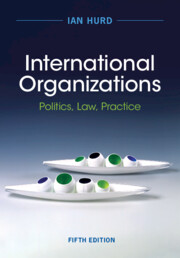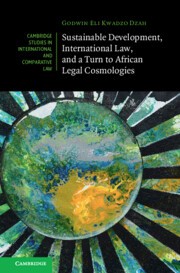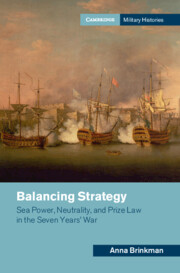1088 results
6 - The Trump Administration and International Law in the State Department
-
- Book:
- Perceptions of State
- Print publication:
- 27 June 2024, pp 197-233
-
- Chapter
- Export citation
3 - State Compliance with International Law
-
- Book:
- Perceptions of State
- Print publication:
- 27 June 2024, pp 65-103
-
- Chapter
- Export citation
4 - Compliance by the United States
-
- Book:
- Perceptions of State
- Print publication:
- 27 June 2024, pp 104-154
-
- Chapter
- Export citation
5 - The Role of International Law in State Department Policymaking
-
- Book:
- Perceptions of State
- Print publication:
- 27 June 2024, pp 155-196
-
- Chapter
- Export citation
Regime of torture: Guantánamo Bay’s ongoing detention and prosecutions of the CIA’s Rendition, Detention, and Interrogation prisoners
-
- Journal:
- Review of International Studies , First View
- Published online by Cambridge University Press:
- 30 May 2024, pp. 1-20
-
- Article
- Export citation
Introduction
-
- Book:
- Sustainable Development, International Law, and a Turn to African Legal Cosmologies
- Published online:
- 16 May 2024
- Print publication:
- 23 May 2024, pp 1-18
-
- Chapter
- Export citation
Establishing a practical test for the end of non-international armed conflict
-
- Journal:
- International Review of the Red Cross , First View
- Published online by Cambridge University Press:
- 20 May 2024, pp. 1-25
-
- Article
-
- You have access
- Open access
- HTML
- Export citation

International Organizations
- Politics, Law, Practice
-
- Published online:
- 17 May 2024
- Print publication:
- 06 June 2024
-
- Textbook
- Export citation

Sustainable Development, International Law, and a Turn to African Legal Cosmologies
-
- Published online:
- 16 May 2024
- Print publication:
- 23 May 2024
Introduction
-
- Book:
- Balancing Strategy
- Published online:
- 25 April 2024
- Print publication:
- 02 May 2024, pp 1-20
-
- Chapter
- Export citation
9 - The Marketing of Genocide
- from Part IV - The Evolution of Lawfare
-
- Book:
- The Violence of Law
- Published online:
- 30 April 2024
- Print publication:
- 02 May 2024, pp 471-508
-
- Chapter
- Export citation
Repairing Historic Injustice: The Return of Indigenous Peoples’ Ancestral Human Remains Through Transitional Justice
-
- Journal:
- International Journal of Cultural Property , First View
- Published online by Cambridge University Press:
- 02 May 2024, pp. 1-20
-
- Article
- Export citation
A new philosophy for international legal skepticism?
-
- Journal:
- International Theory , First View
- Published online by Cambridge University Press:
- 30 April 2024, pp. 1-32
-
- Article
-
- You have access
- Open access
- HTML
- Export citation

Balancing Strategy
- Sea Power, Neutrality, and Prize Law in the Seven Years' War
-
- Published online:
- 25 April 2024
- Print publication:
- 02 May 2024
Learning from failure in ‘an Integral Part’ of EU Law: interpretation of international treaties in the CJEU
-
- Journal:
- European Law Open ,
- Published online by Cambridge University Press:
- 22 April 2024, pp. 1-43
-
- Article
-
- You have access
- Open access
- HTML
- Export citation
Conclusion
-
- Book:
- Menacing Tides
- Published online:
- 11 April 2024
- Print publication:
- 18 April 2024, pp 293-307
-
- Chapter
- Export citation
Introduction
-
- Book:
- Menacing Tides
- Published online:
- 11 April 2024
- Print publication:
- 18 April 2024, pp 1-24
-
- Chapter
- Export citation
4 - Australia and International Law
- from Functional Themes
-
-
- Book:
- Australia in World Affairs 1976–1980
- Published online:
- 29 March 2024, pp 59-80
-
- Chapter
- Export citation
5 - International Law
-
-
- Book:
- Australia in World Affairs 1971–1975
- Published online:
- 29 March 2024, pp 111-125
-
- Chapter
- Export citation
Navigating transformations: Climate change and international law
-
- Journal:
- Leiden Journal of International Law , First View
- Published online by Cambridge University Press:
- 25 March 2024, pp. 1-22
-
- Article
-
- You have access
- Open access
- HTML
- Export citation



